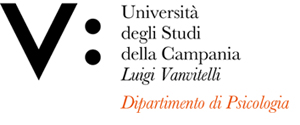Maddalena MARINI
Insegnamento di PSICOLOGIA SOCIALE APPLICATA
Corso di laurea magistrale in PSICOLOGIA APPLICATA
SSD: M-PSI/05
CFU: 8,00
ORE PER UNITÀ DIDATTICA: 56,00
Periodo di Erogazione: Secondo Semestre
Italiano
| Lingua di insegnamento | ITALIANO |
| Contenuti | L’insegnamento si propone di fornire una panoramica dei principali ambiti applicativi della psicologia sociale e del ruolo dello psicologo in tali contesti. |
| Testi di riferimento | - Steg, L., Keizer, K., Buunk, A. P., & Rothengatter, T. (Eds.). (2017). Applied social psychology. Cambridge University Press. |
| Obiettivi formativi | L'obiettivo finale dell’insegnamento è quello di promuovere la conoscenza della psicologia sociale da un punto di vista applicativo, evidenziando il merito scientifico di questa disciplina e ricerca alla comprensione e risoluzione dei problemi sociali radicati nella cognizione e nel comportamento umano. |
| Prerequisiti | Nessuno. |
| Metodologie didattiche | Il corso prevede lezioni frontali, discussioni e esercitazioni. |
| Metodi di valutazione | La prova d'esame sarà svolta in forma sia scritta che orale. La prova scritta si compone di una serie di domande a risposta multipla. Solo gli studenti con una valutazione di almeno 18/30 potranno accedere alla successiva prova orale. |
| Programma del corso | - Introduzione alla psicologia sociale applicata: concetti e definizioni |
English
| Teaching language | Italian |
| Contents | The course aims to provide an overview of the main application areas of social psychology and the role of psychologists in these contexts. It will highlight the different constructs, theories, research methods, and intervention techniques used in this discipline to understand and address social problems. Specifically, the application of social psychology will be presented in the following areas: physical and mental health, diversity and integration, environment, education, media, and criminal behavior. In each application area, the problems and corresponding interventions that can be implemented by applied social psychologists to resolve them will be outlined. Special emphasis will be placed on the cognitive nature of these social problems rooted in human behavior. Additionally, the most relevant lines of research for each specific field of application will be discussed, highlighting the factors that influence our behavior and the developed methods that have proven effective in modifying different types of behavior. |
| Textbook and course materials | - Steg, L., Keizer, K., Buunk, A. P., & Rothengatter, T. (Eds.). (2017). Applied social psychology. Cambridge University Press. |
| Course objectives | The final goal of the course is to promote knowledge of social psychology from an applied perspective, highlighting the scientific merit of this discipline and research in understanding and resolving social problems rooted in cognition and human behavior. |
| Prerequisites | None. |
| Teaching methods | The course includes lectures, discussions, and practical exercises. During the lectures, discussions will be encouraged to foster critical thinking and engage students in debates on the topics covered. Additionally, students will be required to participate in group work and practical exercises. |
| Evaluation methods | The exam will be conducted in both written and oral form. The written exam consists of a series of multiple-choice questions. Only students who receive a minimum score of 18/30 on the written exam will be eligible to proceed to the subsequent oral exam. |
| Course Syllabus | - Introduction to Applied Social Psychology: Concepts and Definitions |








